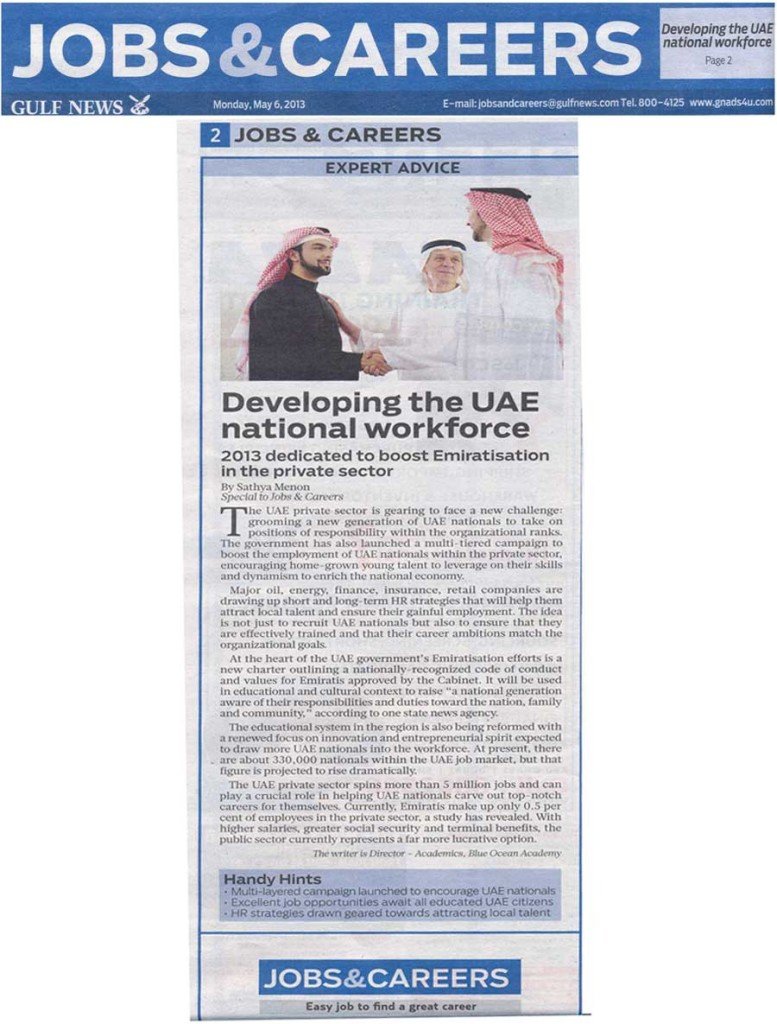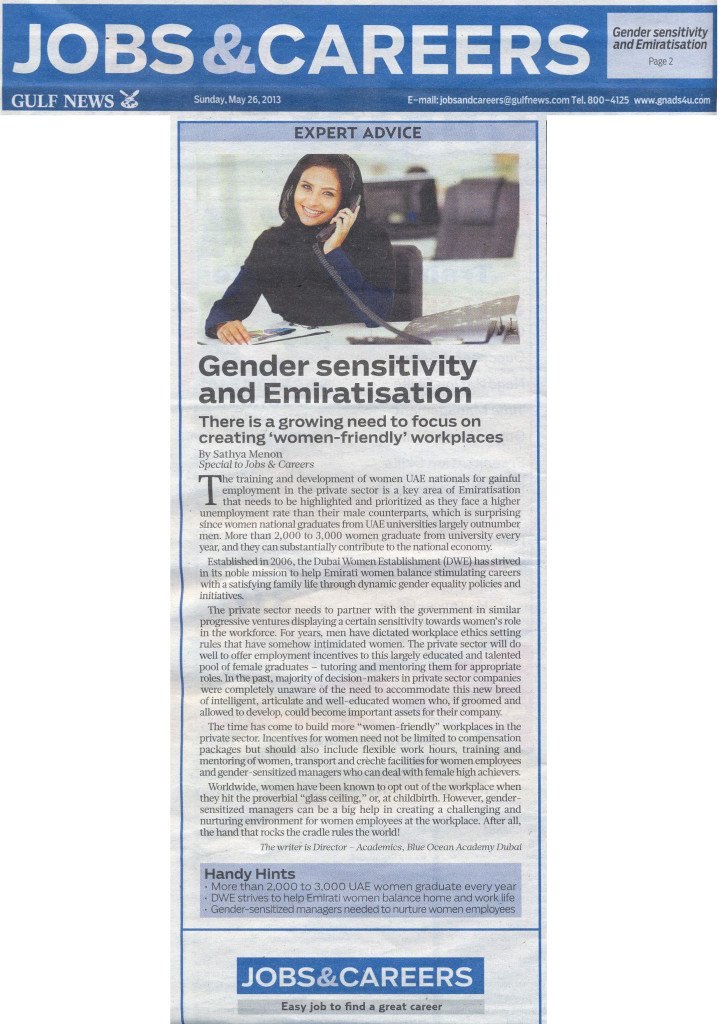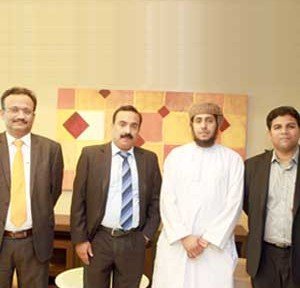2013 Dedicated to Boost Emiratisation in the Private Sector
The UAE private sector is gearing to face a new challenge:
grooming a new generation of UAE nationals to take on positions of responsibility
within the organizational ranks. The government has also launched a
multi-tiered campaign to boost the employment of UAE nationals within the
private sector, encouraging home-grown young talent to leverage on their skills
and dynamism to enrich the national economy.
Major oil, energy, finance, insurance, retail companies are
drawing up short and long-term HR strategies that will help them to attract
local talent and ensure their gainful employment. The idea is not just to
recruit UAE nationals but also to ensure that they are effectively trained and
that their career ambitions match the organization’s goals.
At the heart of the UAE government’s emiratization efforts
is a new charter outlining a nationally recognised code of conduct and values for
Emiratis as approved by the Cabinet. It will be used in educational and
cultural context to raise “a national generation who are aware of their
responsibilities and duties toward the nation, family and community,” according
to the state news agency Wam.
The educational system in the region is also being reformed
with a renewed focus on innovation and entrepreneurial spirit expected to draw
more UAE nationals into the workforce. At present there are about 330,000
nationals within the UAE’s job market, but that figure is projected to rise
dramatically.
The UAE private sector spins more than 5 million jobs and
can play a crucial role in helping UAE nationals carve out top-notch careers
for themselves. Currently, emiratis make up only 0.5 per cent of employees in
the private sector, a study has revealed. With higher salaries, greater social
security and terminal benefits, the public sector represent a far more
lucrative option.
The UAE government has dedicated 2013 as the year to boost
emiratisation in the private sector. Plans are afoot to amend labour laws so
that compensation packages for UAE nationals in the private sector match their
counterparts engaged in the public sector.
By 2020 more than 450,000 nationals are expected to be part
of the labour force, and by 2050 , the figure is expected to touch 600,000,
according to a recent report examining the talent supply of the UAE and Saudi
Arabia.
Yet unemployment among emiratis in the UAE have ranged from
13 per cent to 20 per cent annually according to data from the National Human
Resource Development & Employment Authority as well as the National Bureau
of Statistics.
Female nationals face a higher unemployment rate than their
male counterparts. This is surprising when more than 2,000 and 3,000 women
graduates from UAE University, compared with less than 500 men. The private
sector will do well to offer employment incentives to this largely educated and
talented female workforce.
Handy Hints
- Renewed focus in 2013 on emiratisation in the private sector.
- Multi-layered campaign launched to encourage UAE nationals to enrich public life and national economy.
- Excellent opportunities await educated UAE women to enter the workforce.













.jpg)





















